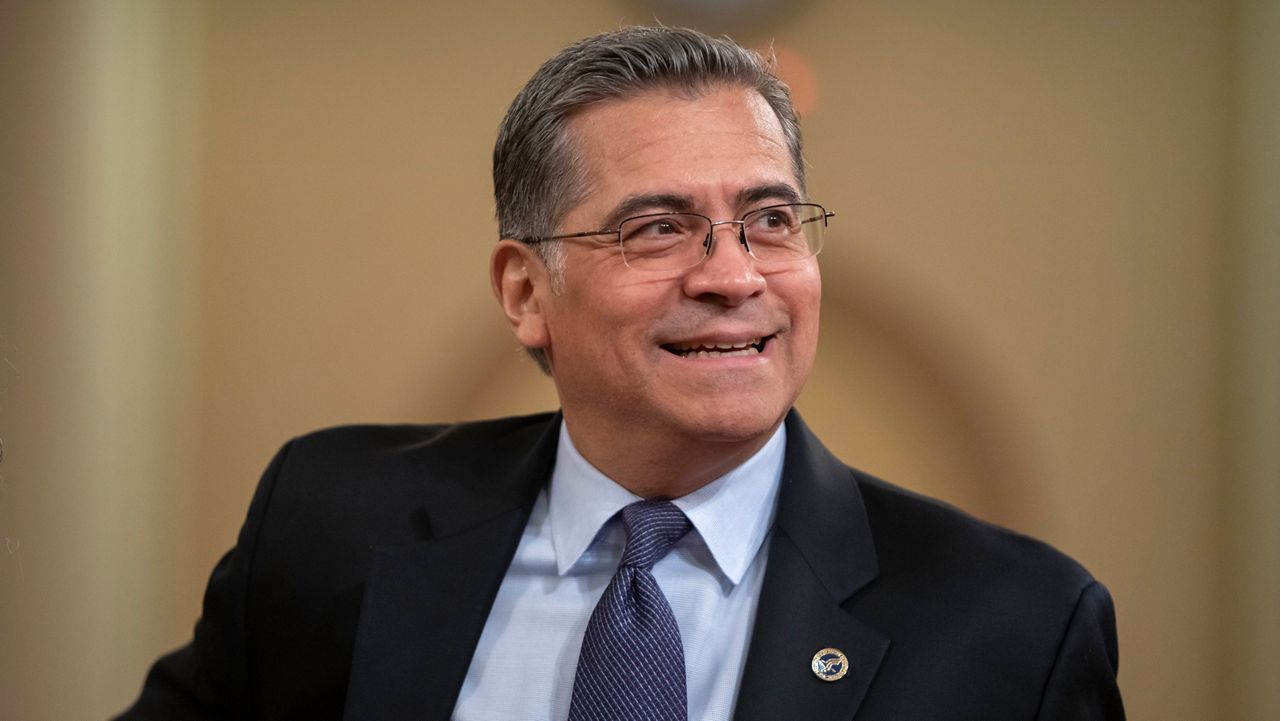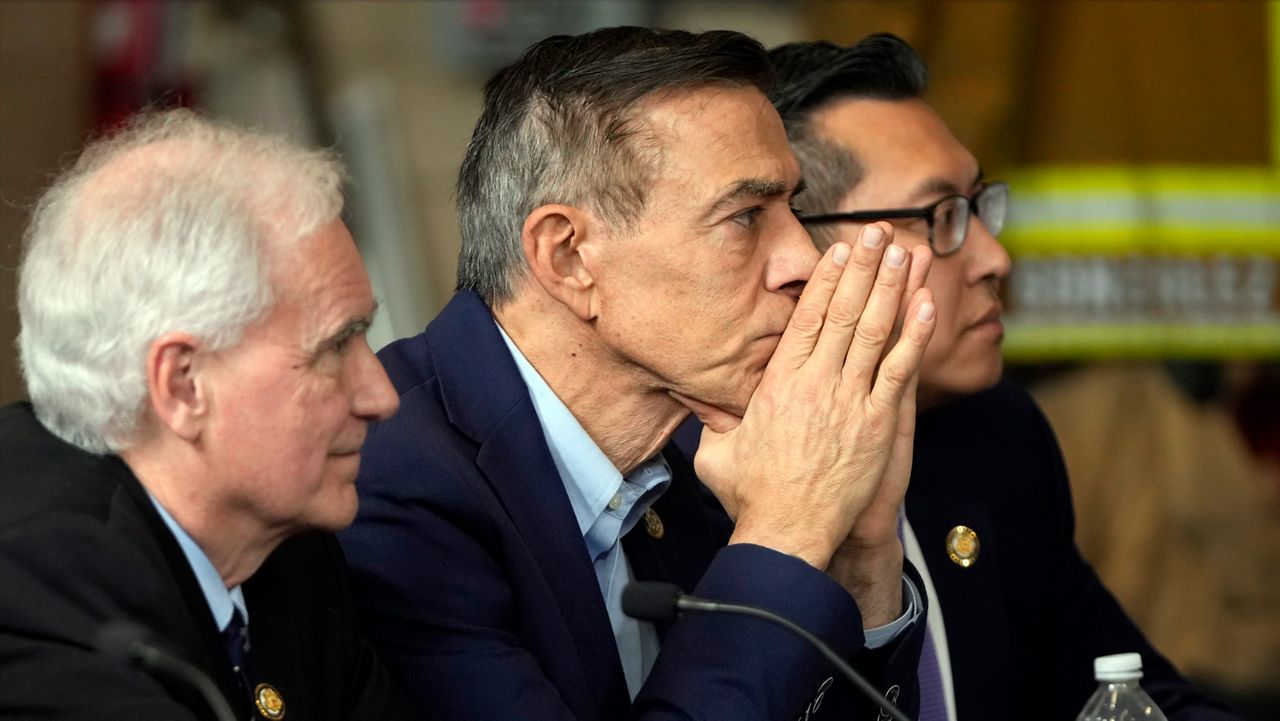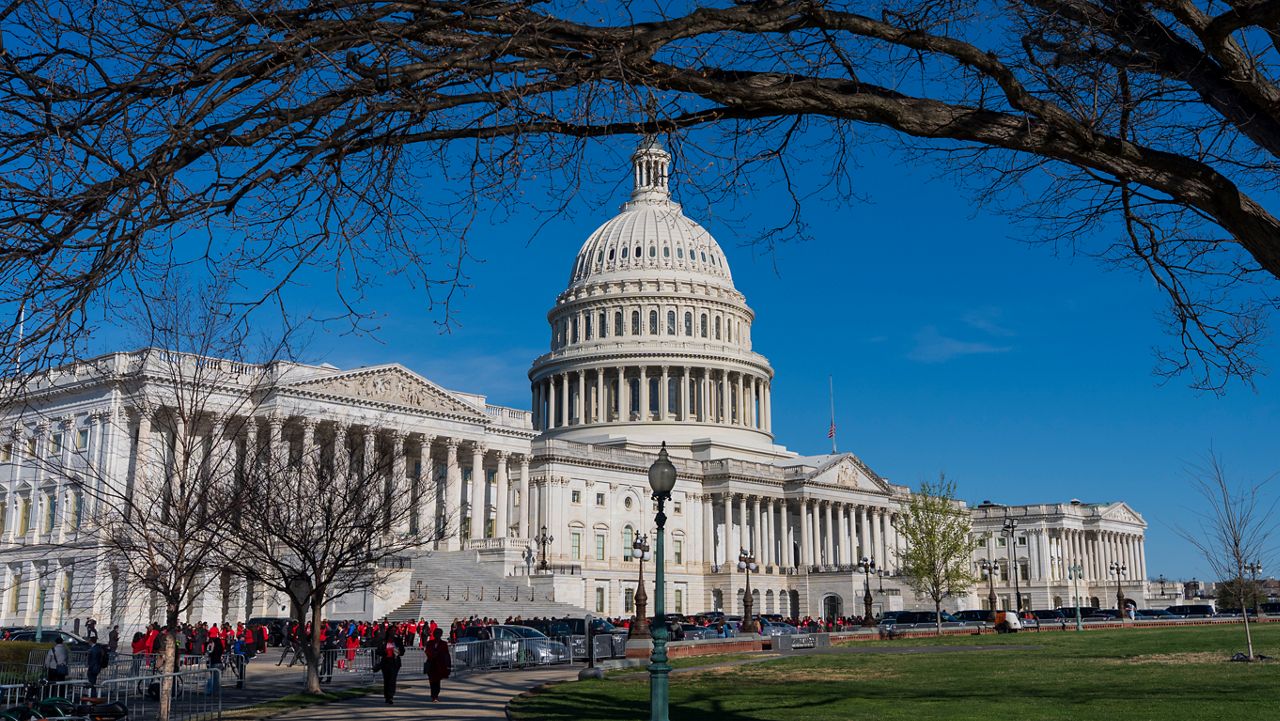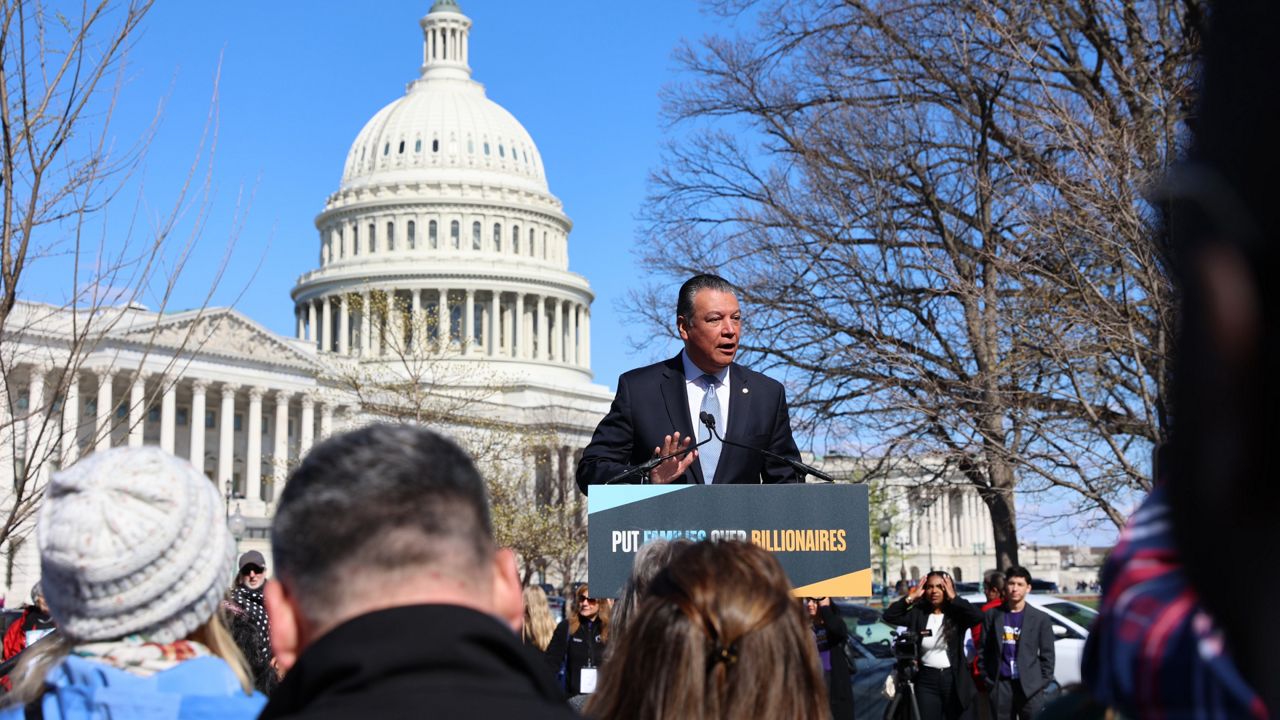While President Donald Trump is holding off on tariffs against Canada and Mexico for now, a 10% tariff has gone into place on Chinese goods. As the top Democrat on the House Subcommittee on Trade, Rep. Linda Sánchez is concerned about what may happen 30 days from now when the deal struck between Trump and the leaders of Mexico and Canada expires.
“He threatens certain things with our allies and closest trading partners, then he gets scared because markets reacted, they dropped very low, and then he backs off. He leaves like fragments in place and then suspends other things on a whim. So clearly, there is no clear plan,” Sánchez said in an interview with Spectrum News. “It's more theatrical and performative. It's to try to get attention, but it creates a great degree of uncertainty, and many businesses cannot plan with that kind of uncertainty.”
Sánchez said she believes the country needs a comprehensive plan for “dealing with certain industries that have been competing on an unequal playing field,” such as China, which produces items at a much lower rate due to questionable labor practices. But blanket tariffs, she said, are not the answer.
“You can raise tariffs on those goods so that when Chinese goods come into the United States, they are paying higher taxes, so that the price is competitive with U.S. products. But he's not doing this surgically — he's just slapping tariffs on everything,” she explained. “So very negative impacts on consumers and not a real benefit in terms of creating U.S. jobs here.”
Sánchez’s home state of California’s biggest trade partners in 2023 were Mexico ($33.26 billion), Canada ($19.07 billion) and China ($16.87 billion), with the state exporting $178.71 billion in total goods last year. If the U.S. were to place tariffs on Canada and Mexico, the two countries have promised retaliatory action, meaning American families would feel an additional burden.
“In California, we love our guacamole. Avocados, $2 an avocado now, expect them to go up to $4 or $6 or even $8. It has the potential to be really impactful on a family's budget,” she explained, adding that these tariffs seem more political than policy driven.
“Trump put a 10% tariff on Chinese goods, but wants to slap a 25% on Mexico and on Canada. Canada is one of our closest allies. They're a NATO ally. If he really wanted to get at cheaters in the trade space, those tariffs would be reversed, but it's clear he's doing this for show and to score cheap political points, and it's not really going to have a beneficial impact in many, many ways, not the least of which is bullying our allies,” Sánchez continued.
Since the U.S. tariff on Chinese goods went into effect on Tuesday, China has announced its own plans for retalitory tariffs that are set to go into effect Monday. The tariffs are set to include an additional 15% tax on coal and liquefied natural gas and a 10% tariff on crude oil, agricultural machinery, large-displacement automobiles and pickup trucks.
In agreement for delaying the tariffs, Mexican President Claudia Sheinbaum said that she will send 10,000 National Guard troops to the U.S.-Mexico border to focus on cracking down on drug smuggling. Canadian Prime Minister Justin Trudeau, for his part, promised to activate 10,000 frontline workers to protect the U.S.-Canada border and committed to appointing a Canadian fentanyl czar.
Republicans on Capitol Hill have been touting what they see as concessions by Sheinbaum and Trudeau as a win for the Trump administration. But Democrats like Sánchez are painting this as Trump backing down rather than as a victory.
“Canada had already pledged to do more in terms of border security, and Mexico already has troops on the border to try to stem migration flows. So there was no ‘get,’ we got nothing for this, other than bad will, other than market disruptions, other than panic in the stock market, and all of that affects consumers here at home,” Sánchez said. “So this is not a win, and it doesn't bode well for America's standing in the world.”
"You don't want to start trade wars, because nobody wins in a trade war. Mexico was willing to match tariff for tariff, so it has the potential to really disrupt not just prices for consumers, but businesses that rely on those countries," she added.
As Sánchez waits to see what Trump will do once the 30 days expire, she warned that American families will bear the greatest burden of these tariffs, despite the Trump administration's claims that "tariffs are a tax on foreign nations" that will be a "great revenue raiser for this country." Sánchez argues it's the opposite.
"One of his biggest election promises was to bring costs down for average working families," she said. "And what this is actually doing is creating more uncertainty. It's creating volatility, and it will definitely mean higher prices at the pump, higher prices at the grocery store and that's something that American families don't need right now."











